- Home
- Daphne Du Maurier
Rule Britannia Page 2
Rule Britannia Read online
Page 2
“Where are you going?”
He took no notice, of course, merely waved a careless hand, grinned over his shoulder and continued on his way. She was about to close the window again when she noticed that a slate on the sloping roof above the little boys’ room had worked loose and was sliding down into the guttering. It was followed by a second, and then a third. Rage filled her. She knew what it meant. Andy had climbed onto the roof from his bedroom on the other side of the house and was squatting on the disused chimney that was his favorite spy-place. He must somehow have dislodged the slates. “I can’t and I won’t stand it.” The memory of the dream, so different from reality, infused Emma with the sense of frustration that can only be appeased by instant action of a useless sort. Deliberately she let her tooth-glass fall into the washbasin with a crash. The splintered fragments gave her satisfaction. “Serve her right,” she muttered. Serve who right? Herself or Mad? The bathwater was tepid—the immersion heater must have gone wrong again. And this, she told herself, is what comes of living in a madhouse, rightly named after its owner, who, on retiring from the stage some years ago after a brilliant career, could think of nothing better to do than to adopt six parentless, maladjusted boys and let them run riot in her home, believing, by so doing, that she had justification for living when her career had finished.
“I won’t help her anymore. She must find someone else. I will not let my life be ruined. I’m far too young.”
Emma bathed and dressed—same old tunic, same old jeans, no one here to care how she looked—and then went downstairs into the kitchen, to be greeted by the revolting smell of eggs and bacon. Dottie insisted that growing boys must start the day with a good breakfast, otherwise they would lose their strength, and as she had the cooking of it she took responsibility.
Dottie had been Mad’s dresser for forty years, and now, torn from the world of theater she had made her own, was installed as cook, housekeeper, cleaner, nurse, or whatever else she might be called upon to do through the sudden demand of the employer she adored. You could hardly imagine, so Emma had decided long ago, the one without the other. If memory was a photographic plate, as she sometimes felt it must be, then her first memory was of the dressing room at the Theater Royal, with Mad turning round from the stool in front of the wide mirror, holding out her arms to Emma at the age of three or four and saying, “Darling…” with that radiant, wonderful smile, and Dottie bustling in the background behind a screen, putting some incredible costume on a hanger. Madam must have this… Madam must have that… Madam is on top of the world… Madam is in one of her moods. And so it was that Dottie’s appellation of “Madam,” which through the years spread down the theater hierarchy, from director, author and leading man to callboy and sceneshifter, became shortened at some forgotten moment, on the lips of a child, to the Mad of today. It was significant, though, that nobody was allowed to use the name but Emma. If anyone else had dared… the heavens would have split asunder.
The heavens were going to split any moment, as a matter of fact, so Emma decided as another wave of planes passed overhead. There must be scores of them, probably some exercise or other, and perhaps that was what was causing interference with the radio. Dottie was trying to squeeze her rotund form into the narrow gap between dishwasher and kitchen sink, head uptilted to the window beyond.
“What’s going on?” she said to Emma. “The blessed things don’t give one a moment’s peace. I didn’t need my alarm clock this morning. It was one long throb-throb before six. They ought to have more consideration for the general public.”
“Who do you mean by ‘they’?” asked Emma.
She began laying the table for the boys. Plates, knives and forks, cereal bowls.
“Well,” Dottie replied, returning to her fry, “the powers that be, whoever they are. They’ve no right to do it. Now I’ve burned the toast. It’s going to be one of those mornings. The post’s never come and I had to send Terry on his bike to look out for the van. If Madam doesn’t get her post with her orange juice there’ll be murder in the house. I’ve been expecting her bell for the past half-hour as it is. Get those boys moving, Emma dear, I’m all behindhand. And tell Andy to clean his teeth with the toothpaste, not the soap.”
A moment’s respite from the droning overhead. A sudden lull. I ought, thought Emma, to be doing something truly worthwhile, like nursing old people with leprosy, or feeding famine-stricken multitudes after a tidal wave… Oh hell, she thought, what a load of rubbish. This is what TV documentaries do to one, Mad is perfectly right. All judgment goes.
Deathly silence from the little boys’ room. Surely they were not still asleep? She opened the door. The curtains were tightly drawn, but the light was on. Ben was sitting in the far corner of the room on an upturned chamber pot to serve as stool. He was stark naked except for a pair of gloves and a discarded hat of Mad’s, sent to a jumble sale and never sold. He was ebony black and beautiful, and looked less than his three years. It was not only because of his color that Mad had adopted him but because, so the authorities told her, there was something amiss with his tongue, he might never learn to speak. He rolled delighted eyes at Emma as she entered, held up two fingers, a gesture taught him by Terry, then gazed once more towards the uppermost bed of the double-bedded bunk which he shared with Colin.
Colin, six years old, was as white as Ben was black, blue-eyed, golden-haired—a director would have picked him from a million candidates for the role of the child Jesus. Found in a ditch after a Pop festival, his parents never traced. Mad, who was snobbish at times, swore he was of royal descent, but the devil had a hand in his making too, for he had a serpent’s guile beneath an angel’s hide. “If anyone can teach Ben to speak Colin will,” Mad determined, and to Dottie’s consternation she placed them together in the double bunk, from which moment Colin had become Ben’s god, though speech had not yet materialized.
“What are you doing?” asked Emma suspiciously.
Colin was lying motionless on the top bunk with a sheet folded over him, his hands crossed on his breast. His eyes were closed. Emma walked over to the bunk and prodded his cheek, and one eye opened.
“Go away, Emma. I’m doing a play for Ben. I’m Madam dying, and in a moment I’m going to gasp and choke and it will be the end of the play. Ben will then have to clap, and I shall jump up and bow.”
“What a horrible idea for a play,” said Emma. “Stop it at once and dress, breakfast will be ready any minute.”
Colin looked aggrieved. “It’s not horrible at all. It’s realistic. Madam thought of it herself. We’re rehearsing it for her. At least, I am—Ben’s the audience.”
Emma left them to it and went out of the room. The trouble was, as Pa was in the habit of saying—though she disliked agreeing with him where Mad was concerned—the trouble was that Mad was the last person in the world who should be permitted to give a home to maladjusted children. Happy they might be, but the world they lived in was unreal, a world of fantasy. Like mine, Emma thought, like mine, we’re all tarred with the same brush, Mad’s brush…
She walked along the narrow passage and opened the door of the middle boys’ room. Andy and Sam, being twelve and nine, were known as the middle boys to distinguish them from their elders, Joe and Terry, who were nineteen and seventeen. The middle boys also had bunks, but their room was larger than the little boys’ lair, and it had a distinctive smell. This was due to the wired-off portion, containing a very ancient gray squirrel which, Sam had decided, could no longer fend for itself. The squirrel had shared the bedroom with him and Andy for several weeks. Discarded nutshells scattered the floor. Dottie had protested, practically in tears, that it was against all laws of hygiene.
“Hygiene my foot,” Mad told her. “Sam will probably grow up to become a famous zoologist and win a Nobel prize. I won’t have him checked.”
Sam was kneeling on the floor when Emma entered the room, but he was not tending to the squirrel’s needs. A new inhabitant, a pigeon, trailed a wing, whi
le Sam endeavored to coax his visitor to take seed from his open palm. He glanced over his shoulder and motioned Emma to silence.
“Don’t come too near, Emmie,” he whispered, “you might scare him. Once he knows me for a friend he’ll let me bind up his wing.”
Perhaps. Perhaps not. Sam had saved wounded birds before now, but he had known failure too, and then there had been tears, and funeral ceremonies in the shrubbery, with Colin, invariably fascinated by death, performing his role as parson.
“How did it happen?” asked Emma, also whispering.
“He fell from the roof. He was disturbed by something.” Sam had a narrow, thin face, and he had been born with the squint that was still his distinguishing mark, making those who did not know and understand him feel uncomfortable. Perhaps it was the squint that had discomfited his parents some years previously. Sam had been a battered baby, and when Mad saw the bruises she seized him for her own.
“What disturbed him?” Emma enquired. “Was it those planes?”
The crossed eyes spared Sam from many an admission. People could never tell from their expression whether he was speaking the truth.
“Yes,” he said, “at least, I think so.”
The open window and the absence of Andy suggested otherwise, but Emma knew better than to expect Sam to betray his roommate.
“It’s all right, you don’t have to tell me,” she said. “I know he’s on the roof again, I saw the fallen slates from the bathroom window.”
She crossed the room, and opening the window wider still, but holding it firmly, leaned backwards, suggesting someone on the point of suicide. The square chimney at the roof’s end, long blocked from within, had a rounded aperture, whence the smoke in ancient times had issued from a vast range in a basement kitchen. Today the opening made a splendid vantage spot for an adventurous boy, who, well concealed, his matted hair, which might have been a jackdaw’s nest, the only visible sign of occupancy, could thus ensconce himself as lord of all he surveyed, occasionally to the disadvantage of those below.
“Come on down,” called Emma authoritatively. “I shan’t tell you again.”
The jackdaw’s nest moved. So did a weapon. How on earth, Emma wondered, had Andy managed not only to climb the dangerous sloping roof but to carry with him one of the bows which all the boys were forbidden to touch, and which should by rights be standing with its fellows in the entrance hall?
“Given me by a field marshal,” Mad used to say. “Toxophily was his favorite hobby. He was one of my greatest fans for years.”
“Completely untrue,” Pa would whisper to Emma. “She bought them at the Battersea funfair.”
True or false, the arrows that went with the bows were lethal. Andy’s head and shoulders emerged from the chimney. He smiled engagingly at Emma.
“I only grazed the pigeon,” he called. “I didn’t mean to, I wanted to scare the aircraft, but they were out of my range. Several choppers came low, and if they’d only been a few hundred feet lower I might have got one of the pilots.”
“Bad luck for you,” scoffed Emma. “Now come along down, and put that bow back where you found it.”
“But it’s mine,” shouted Andy, wide-eyed. “Madam gave it me, didn’t you know?”
Emma shrugged, and withdrew from her precarious window ledge. It was quite hopeless to instill any sort of order. One of these days someone would be murdered, and it wouldn’t be the fault of herself or Dottie or the boys. Mad would be to blame. As for Andy, you would think that a child who was the only survivor of an air crash in which both father and mother and an elder sister had been killed—sabotage, a bomb had exploded soon after take-off—would have fought shy of the idea, however distant from reality, of bringing further aircraft and their crew to the ground in flames. Not so. Which only went to show… show what? Emma left the middle boys’ quarters and returned to the kitchen.
“I told you it’s one of these mornings,” observed Dottie, dishing up the eggs and bacon onto a long trestle table. “The telephone’s not working. I wanted to ring the butcher and the line’s gone dead. I don’t know what Madam will say. Will you take up her orange juice, dear? I don’t think I can face her at the moment. It’s one thing after the other. Half a mo’, I hear Terry with the post now.”
The inevitable skid of the bicycle, as it was thrown on the ground under the kitchen window. Then the clatter up the back stairs and Terry burst into the room, his cheeks aflame, the same color as his shirt. His looks were Byronic, clear-cut profile, tumbled curls, and, though barely seventeen, he was the heartthrob of all the girls within a ten-mile radius. The trouble was that his drug-taking mother, who couldn’t name his father, had slashed her wrists in a moment of despair and left Terry to be discovered by a neighbor. He had scampered from every Home until Mad rescued him. This was several years ago, of course. He was Mad’s first find, and didn’t let you forget it.
“You’ve no idea,” he said breathlessly, turning from Dottie to Emma. “I couldn’t get further than the top of the lane. There’re soldiers everywhere. They’ve got a great barricade across the main road. I couldn’t get within twenty yards of them—they waved me back. And all the time those choppers overhead creating a hell of a racket. It’s terrific, just like the real thing. Where’s Joe?”
The sound of sawing from the basement told him that his roommate was at his usual early morning ploy of filling log baskets for Madam’s fire. The skies could burst, helicopters land in the garden, Joe would carry on undeterred with his self-imposed task of ministering to Madam’s needs.
“Barricades, indeed!” exclaimed Dottie. “Whatever next? Did you see the post-van, Terry?”
Terry stared at her and snorted. “Are you crazy?” he said. “Do you think a post-van could get past that lot? A bunch of them are up the telegraph poles, too, doing something to the wires.”
He clattered downstairs once more in search of Joe, slamming the kitchen door.
“That explains why I couldn’t get the butcher,” said Dottie. “Madam is going to raise Cain when she hears of this. Here, take the orange juice.” She gave the neatly laid tray into Emma’s waiting hands. “It beats me why she hasn’t rung before now. Did you remind Andy to clean his teeth?”
Emma did not answer. Andy’s teeth were of secondary importance compared with the strange happenings without, all of which must surely have a direct and disastrous effect upon Mad’s early morning mood. She went upstairs slowly, disliking her mission, for untoward events, unless expressly designed to suit the purpose of the doyenne, could have unfortunate consequences for the household. She paused at the head of the stairs. The notice “Don’t Disturb,” which hung from the handle of the door, had been turned around to reveal its reverse. This was the quote from Dante’s Inferno, “All hope abandon, ye who enter here,” which one of Mad’s leading men, in days long past, had stuck up outside her dressing room as a warning to intruders.
Emma coughed, knocked, and went in to her grandmother’s bedroom.
2
Mad wasn’t in bed. She was sitting up in her chair by the open window that overlooked the bay, field glasses to her eyes. She was fully dressed, if such a term could be used to describe her outfit, which was a combination of Robin Hood and the uniform worn by the late lamented Mao Tse-tung. It was certainly practical for early November on the Cornish coast, if the person wearing it was about to engage in an archery competition or clean a locomotive. Mad was destined to do neither, so far as her granddaughter was aware, but then you never could be sure what the day would bring.
“Dottie’s apologies,” Emma began. “It’s one of those mornings. I hope you haven’t been awake for hours. Those infuriating planes, and now Terry reports there are roadblocks at the top of the hill on the main road and soldiers everywhere. It must be a hell of an exercise. The post can’t get through, the telephone’s gone dead, and even the radio won’t work. Here’s your orange juice, darling.”
She put the tray down by the writing table beneath the
window. Mad did not answer. She was too intent upon the view through the field glasses. Staring at the ships at anchor, before they entered port, was one of her favorite occupations. She liked to think she knew the nationality of every waiting vessel by its shape and design, quite apart from its flag, but today the test was harder. There were no merchant ships waiting to load clay. A warship was at anchor, too distant to decipher anything about it from its ensign, which was out of sight, or from its shape or superstructure. It was evident to Emma, even without the aid of field glasses, that the helicopters which were passing to and fro hailed from the parent ship in the bay.
“I still don’t see,” she continued, “why a naval exercise should have to disturb everyone ashore, interfere with radio, cut the telephone and stop post-vans delivering the mail.”
Mad lowered the field glasses and reached for her orange juice. Emma wondered why, instead of the usual exclamation of annoyance or impatience which the morning’s surprising events should have evoked, her grandmother seemed thoughtful, even grim. The clear-cut profile that in her youth, and indeed throughout her theatrical career, had stamped itself on postcards all over the world appeared suddenly aquiline and harsh. The cropped white hair, curling at the nape of the neck, gave her the appearance not of a famous beauty and actress who, when she celebrated her eightieth birthday in two weeks’ time, would finger nosegays and Interflora tributes with a graceful bow, but of an aged warrior, possibly a Roman legionary, who after long idleness and years of peace lifted up his head and scented battle.
“This isn’t a naval exercise,” she said, “nor even a combined forces exercise. If it was, we’d have heard about it. Jimmy Jollif would have rung me up days ago.” Admiral Jollif was the C.-in-C. at Devonport, and because he was the son of an old friend of hers, long dead, he and Mad were on Christmas card terms. He had even been to lunch. Emma thought it doubtful that the Admiral would have telephoned her grandmother to warn her of forthcoming postal and telephone delays, but you never knew.

 Jamaica Inn
Jamaica Inn The House on the Strand
The House on the Strand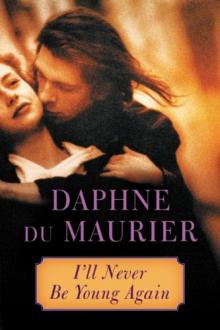 I'll Never Be Young Again
I'll Never Be Young Again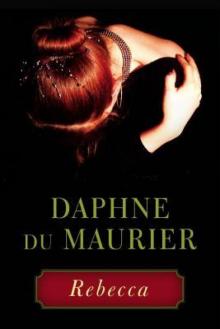 Rebecca
Rebecca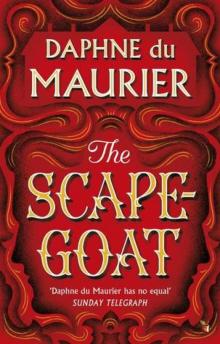 The Scapegoat
The Scapegoat The Birds and Other Stories
The Birds and Other Stories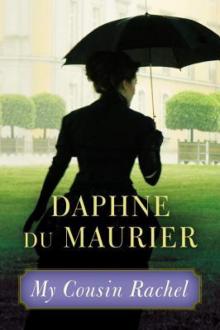 My Cousin Rachel
My Cousin Rachel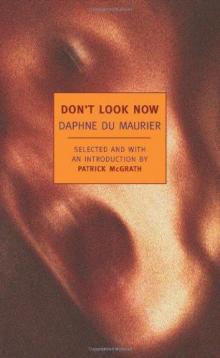 Don't Look Now
Don't Look Now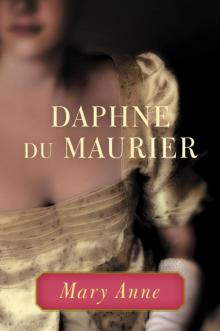 Mary Anne
Mary Anne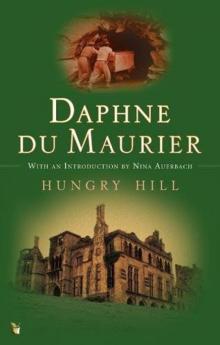 Hungry Hill
Hungry Hill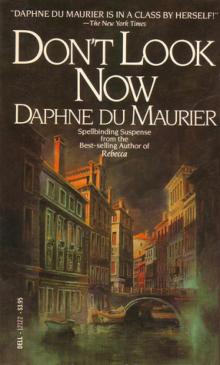 Don't Look Now and Other Stories
Don't Look Now and Other Stories The Loving Spirit
The Loving Spirit Rule Britannia
Rule Britannia The King's General
The King's General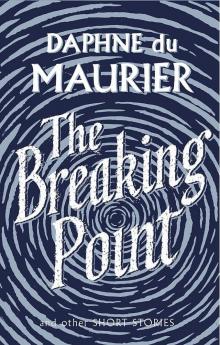 The Breaking Point: Short Stories
The Breaking Point: Short Stories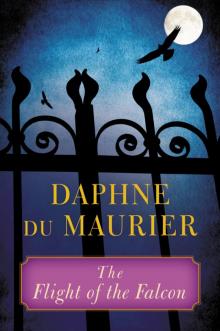 The Flight of the Falcon
The Flight of the Falcon The Apple Tree: a short novel & several long stories
The Apple Tree: a short novel & several long stories The Breaking Point
The Breaking Point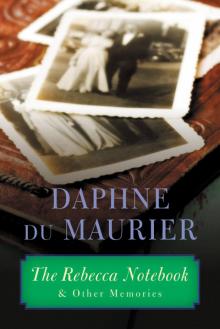 The Rebecca Notebook
The Rebecca Notebook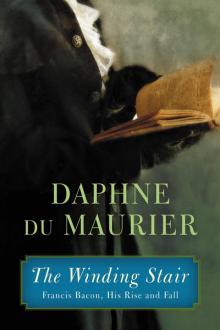 The Winding Stair: Francis Bacon, His Rise and Fall
The Winding Stair: Francis Bacon, His Rise and Fall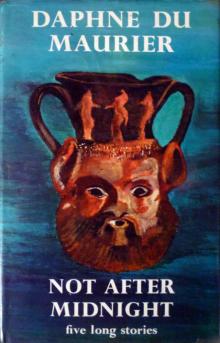 Not After Midnight & Other Stories
Not After Midnight & Other Stories The Doll
The Doll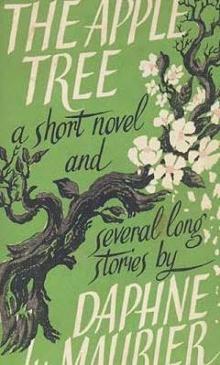 The Apple Tree
The Apple Tree